Have you ever wished for an assistant who could make legal stuff easy to understand? What if they were quick access and able to navigate complex cases? Imagine an AI legal assistant that is faster than you could say “Objection”?
Since the advent of the AI boom, pioneered by ChatGPT and Open AI, the world has seen a big shift. Every job function has benefitted from Generative AI and Natural language processing.
If you are in the legal department, there are tools for you as well.
So say hello to modern legal assistants powered by AI!
Think of them as your quick-dial brilliant legal sidekicks, minus the caffeine fix.
They’re the Sherlock Holmes of law. Sorting out contracts and figuring out cases.
In this article, we dig into the 9 best AI legal assistants that are changing the lives of attorneys and top law firms alike.
But what makes an AI Legal Assistant ‘Good’?
Navigating through the noise can be tough. So here are the 4 key capabilities to look out for that an AI legal assistant MUST have:
- Research Capability: Research in this case refers to an efficient retrieval of legal information. This would involve digging through legal databases, legislation, and historical information about the case.
- Contextual Understanding: An AI legal assistant must have an understanding of nuances in the legal context.
- Legal Accuracy: It is critical to ensure accurate legal information to avoid errors.
- Ethical and Regulatory Compliance: The AI legal assistant must adhere to data privacy and be compliant with ethical and legal norms.
9 best AI Legal Assistants
These are the 9 tools we have recommended trying to up your legal practice game.
1. Luminance
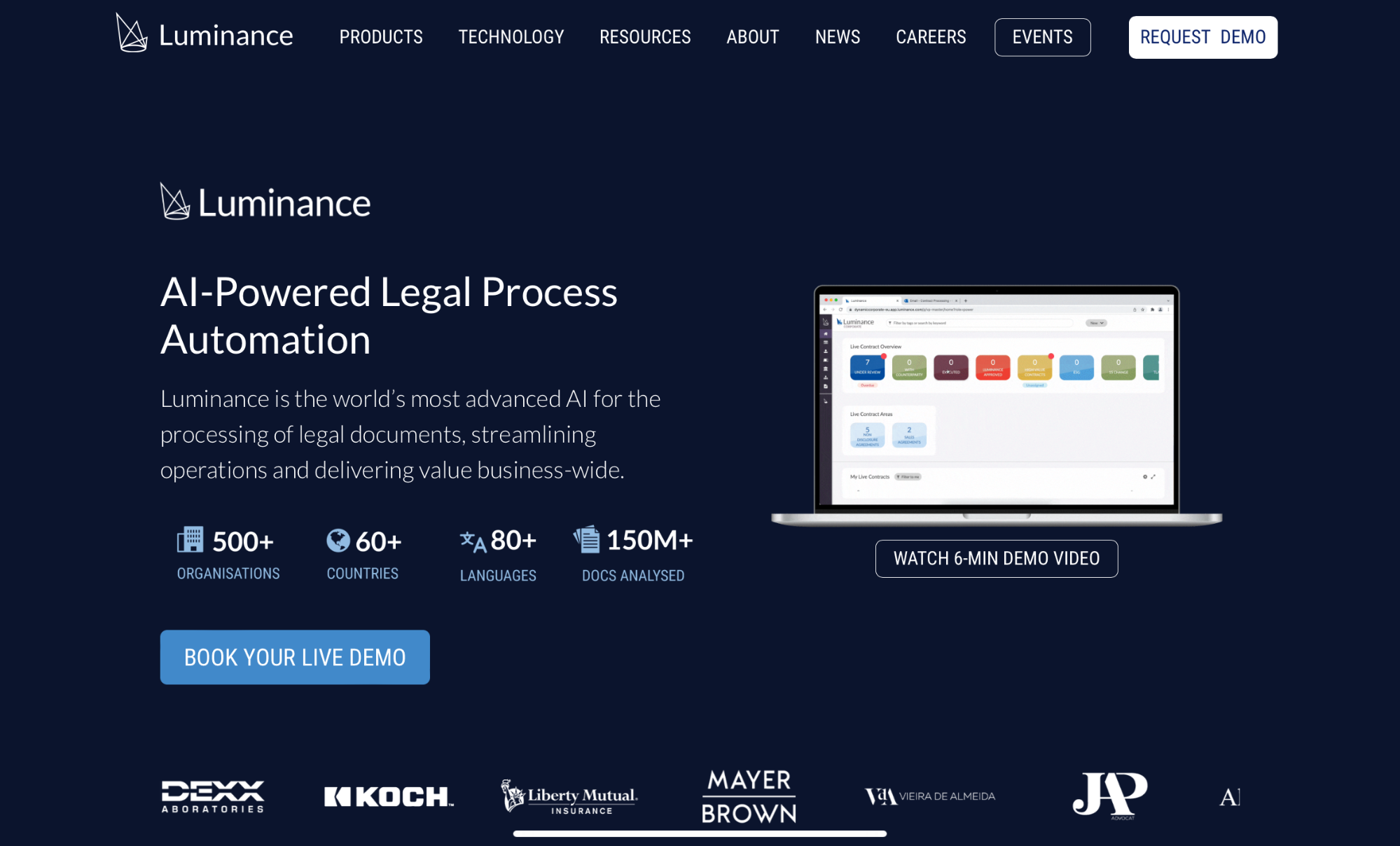
Luminance helps you take your contract review process to the next level. The AI-powered tool is designed to keep lawyers and attorneys in mind.
As a lawyer with a high amount of documents to go through, luminance comes in for a clutch.
Luminance analyzes contracts and highlights critical information. One of its key features is the ability to identify potential risks. It’s fast and produces accurate results so lawyers can review contracts with unparalleled efficiency.
The tool also helps you make better-informed decisions in record time and ensure your legal practice is clean. If you want to offload massive stress caused by the chaos legal documents bring, luminance is a no-brainer.
Here are some of its core features:
- AI-Powered Contract Review
- Contract Analysis
- Risk Identification
- Automation of Admin Tasks
2. CaseText’s CoCounsel
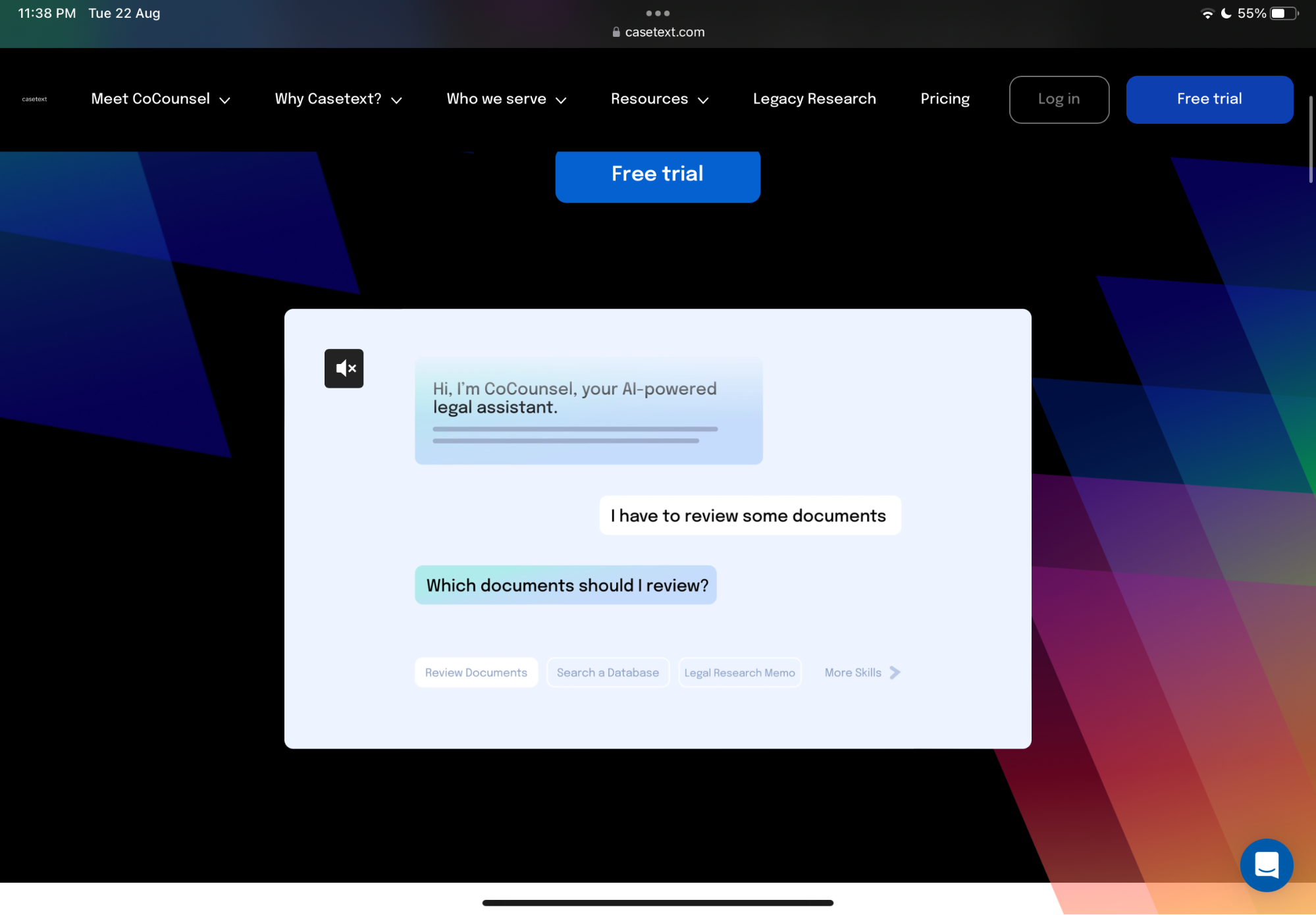
Co-counsel is an AI legal research tool that uses Natural language processing to execute various tasks for lawyers.
As a user of Co-counsel, you get to find relevant and similar cases to aid your research and draw insights. It also provides a brief of the case and highlights the most important bits And passages making the research process extremely fast.
Most Lawyers swear by the accuracy and speed the product provides and the mental bandwidth it frees up in the research process. And all this ends up saving a lot of time and money for the firm deploying Co-Counsel.
Some of its core offerings include:
- Reviewing documents,
- Researching cases using NLP
- Deposition preparation, and
- Trial preparation
3. LegAI
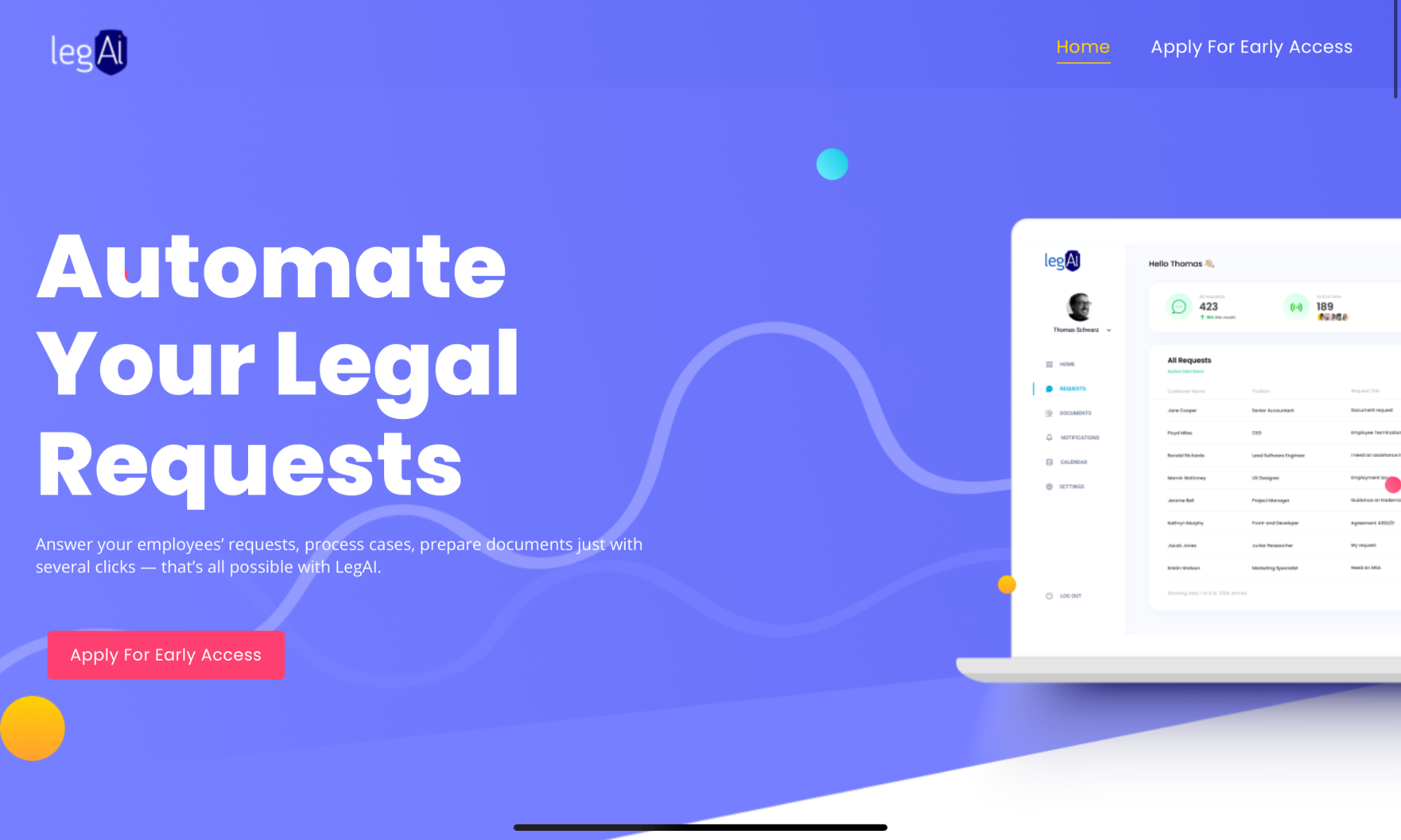
LegalAI is your all-in-one solution for legal matters, using both AI and legal expertise to improve your legal department’s efficiency.
Legal teams deal with messy, unstructured requests. Often causing chaos and missed insights. That’s where LegAI comes in, bringing some much-needed organization to the madness.
According to LegAI, Legal teams spend around 22.7% of their time drafting documents. But LegAI streamlines this. It gathers the info needed and generates template documents right away.
LegAI’s Chat Assistant tackles inbox overflow and the constant repetitive questions head-on. It automates internal legal communication, so your inbox is handleable.
In summary, its key features include:
- Organize and manage unstructured legal requests
- Draft legal contracts and agreements
- Inbox management
- Chat Assistant
4. LawGeex

LawGeex is a Legal Prediction Tool to help you assess the case. It helps you do it by predicting the case’s outcome based on facts and law.
It uses industry-first, patented AI technology to redline all your documents based on your predefined policies. This helps you automatically review documents for key terms and clauses.
Unlike other solutions that only flag unacceptable or missing clauses, Lawgeex understands the contractual context as well as your position.
Law Geex boasts an astounding 80% time saved in reviewing documents and saves up to 90% of your costs compared to manual approaches.
LawGeex’s key features include:
- Automated Document review
- Identify and flag potential risks
- Contract Automation and management
- Generating reports.
5. Paxton AI
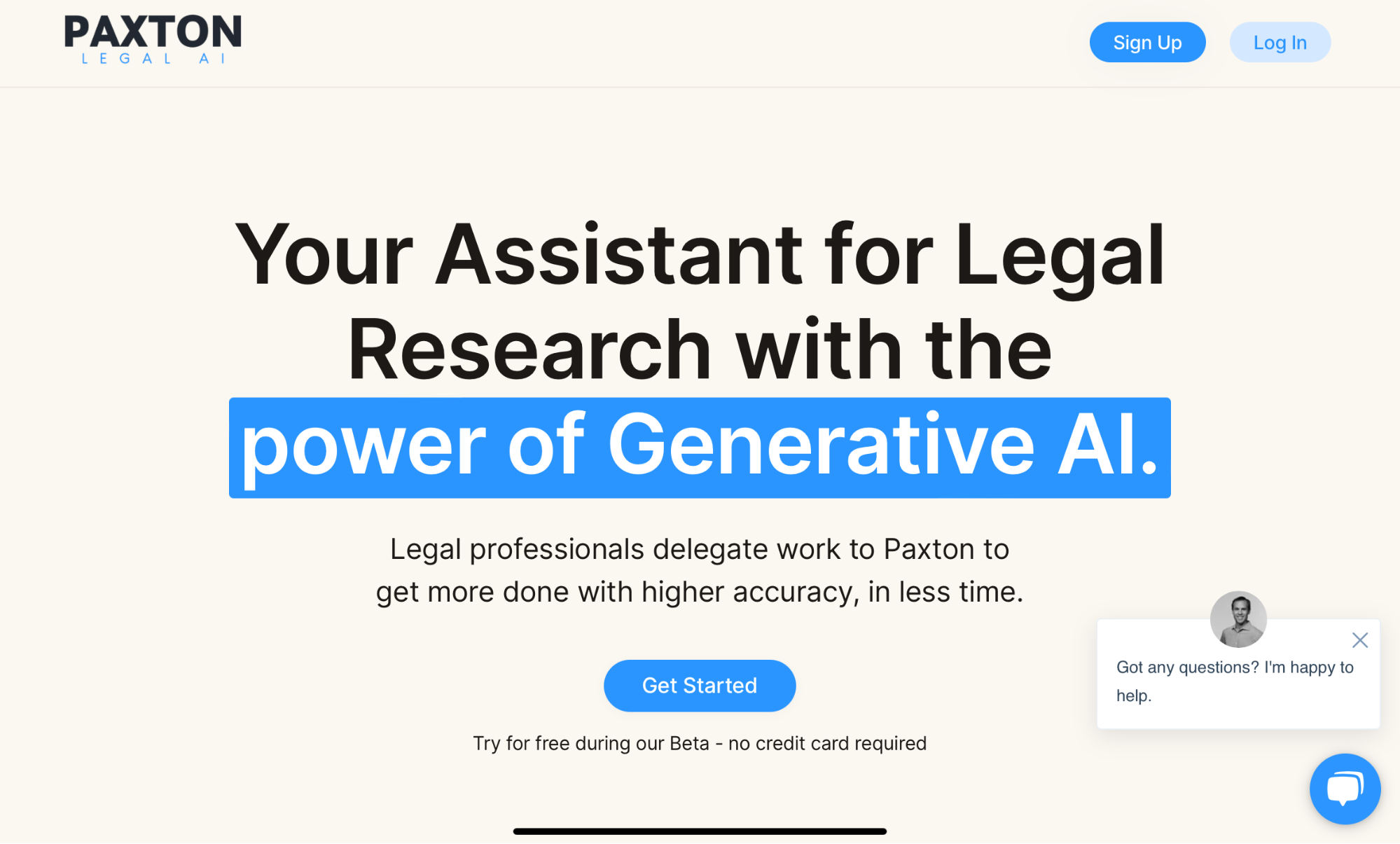
Paxton AI is an AI-powered legal research and drafting assistant. It’s cloud-based based so it can be accessed from anywhere. Paxton Lightens your load of legal research and drafting.
Paxton AI positions itself as a highly accurate legal AI Assistant so you can get the most work done in a fraction of the time.
Currently, Paxton Ai is on Beta, so you can try it without using your credit card.
One of the core features of Paxton is that it’s excellent at summarizing complex topics so you can learn and interpret documents easily.
Here are some of its key features:
- Best in class Accuracy
- Citation feature that directly links to sources
- Summarizing cases and giving key Takeaways
6. DoNotPay
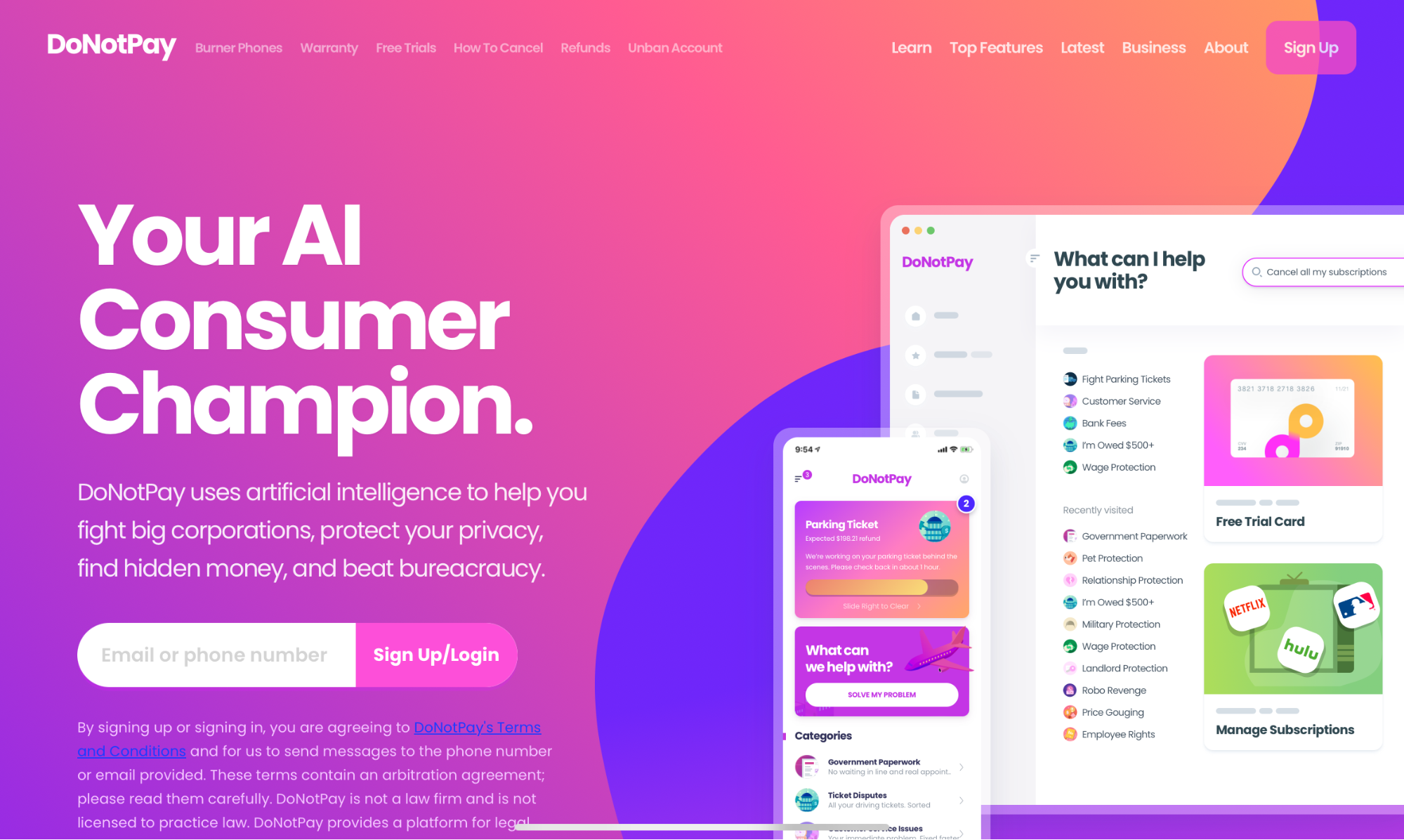
DoNotPay positions itself as a tool for the common man. It uses AI to simplify legal matters and gives a voice to people without legal expertise.
DoNotPay positions itself as a tool that helps you “fight big corporations, protect your privacy, find hidden money, and beat bureaucracy.”
The typical user won’t be a lawyer since it’s mainly to help out the common man. However, legal professionals can also leverage it to better understand the journey of their clients and competitors.
DoNotPay cannot provide legal advice in case you have a very complex legal issue. In instances like that, the users should consult with a lawyer.
DoNotPay can help you with a wide range of legal tasks including:
- Filing complaints with government agencies
- Disputing parking ticket
- Getting debt relief
- Canceling subscriptions.
7. Legal Sifter
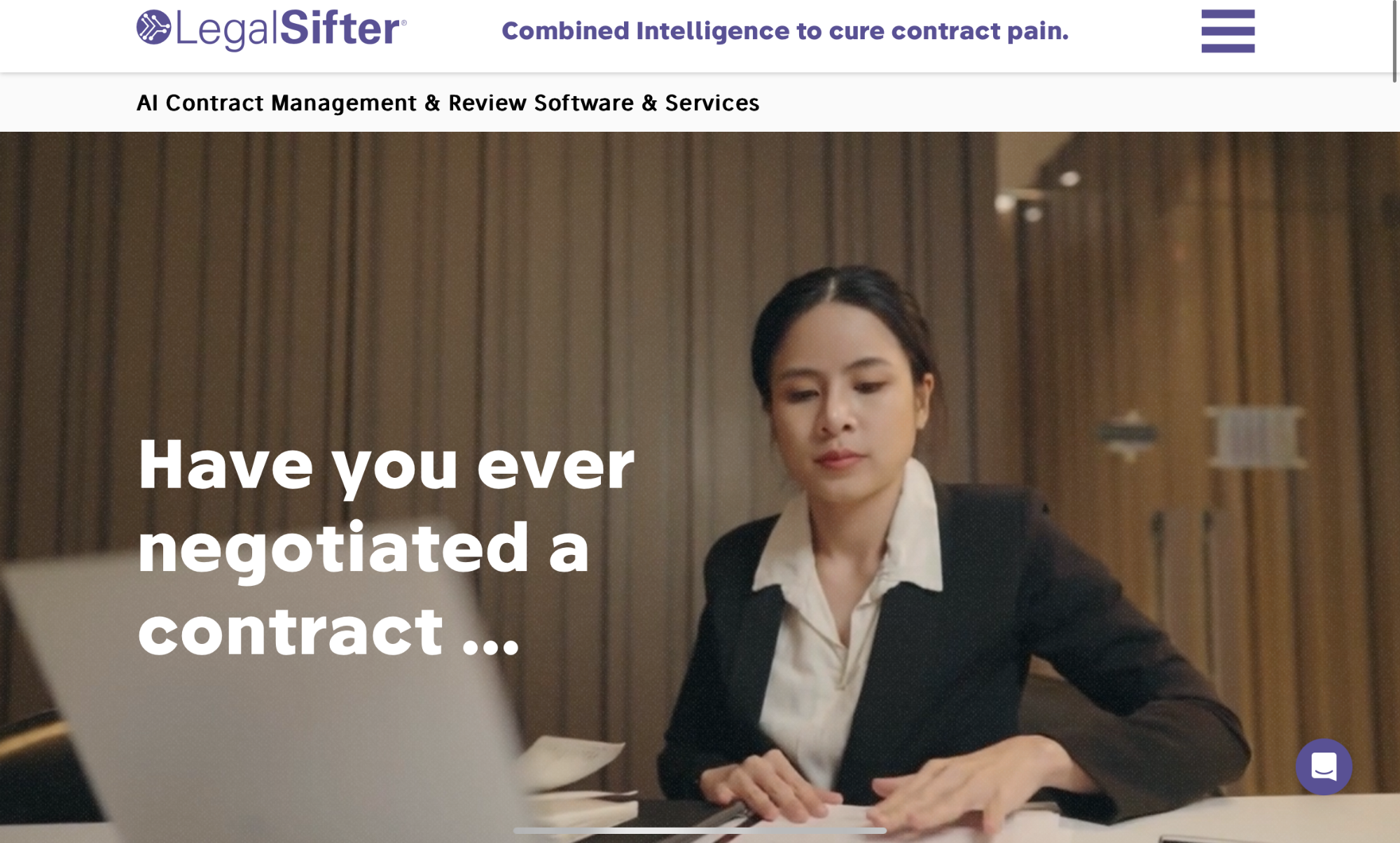
Legal Sifter is a contract review tool that uses NLP algorithms to identify issues in legal contracts.
Legal Sifter helps law firms and legal departments review contracts. It also does a deep audit of the contract’s language and highlights critical areas that need revision. This is referred to as ‘Sifting’
Its goal is to improve the accuracy of the contracts, which it does quite well considering it learns from user feedback and keeps improving the review capabilities.
Legal Sifter has been well adopted by big law firms, midsize law firms, and in-house legal teams. Mainly because of its high accuracy levels and the high compliance it brings to the table. Another big reason would be its risk-flagging capability which ensures potential problems are dealt with before they arise.
Here are the key capabilities:
- Efficiently (and quickly) scans large amounts of documents.
- Review contracts, depositions, and other legal documents.
- Uses AI to help lawyers find relevant information in large datasets.
8. ROSS Intelligence
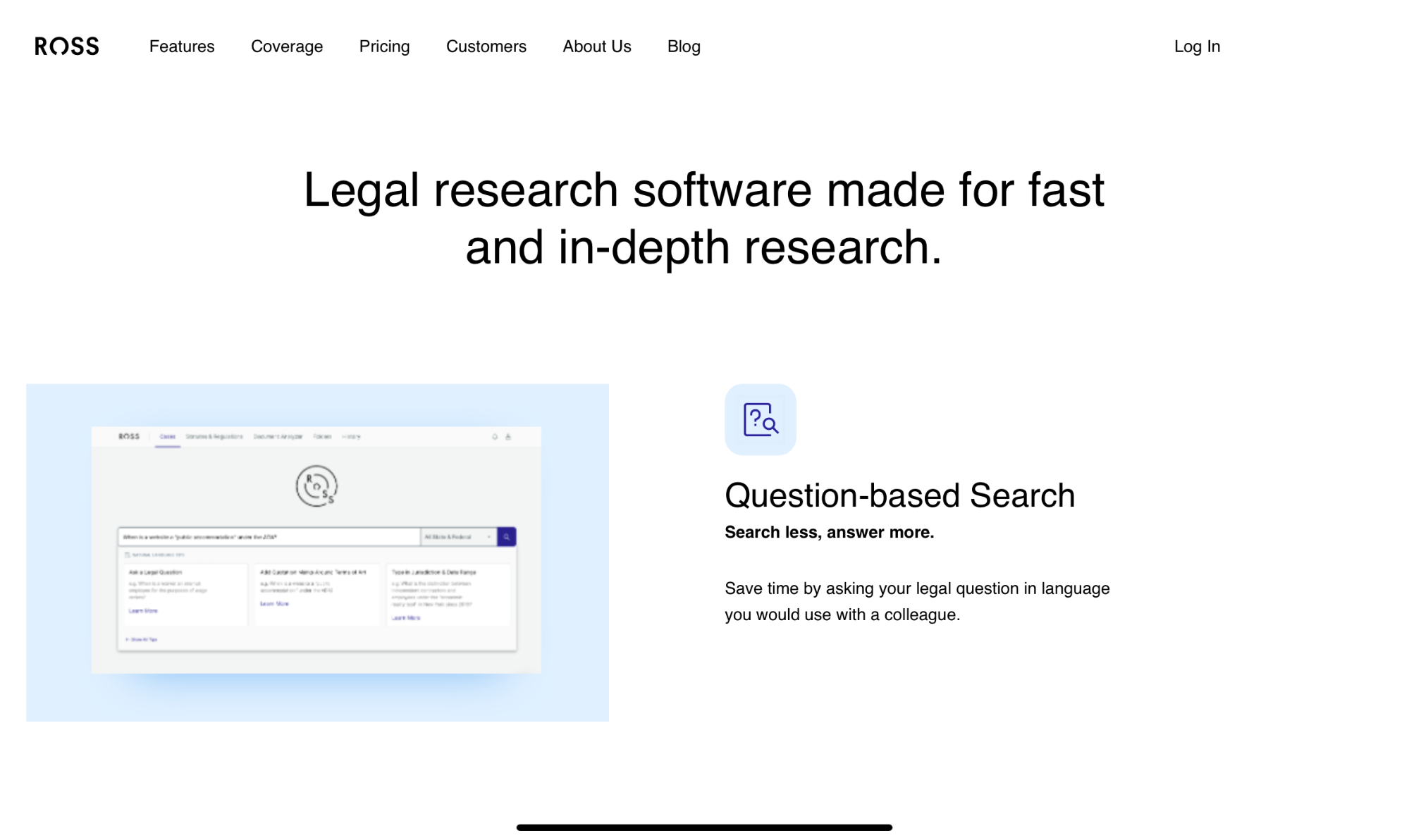
ROSS Intelligence is known for its advanced legal research capabilities and natural language processing. ROSS Intelligence NLP is at a level that allows it to understand the nuances of legal language. This helps lawyers find relevant case law and statutes. And save a lot of time
Despite its intelligent features, ROSS Intelligence has been known to be not as user-friendly as some other legal research tools.
ROSS Intelligence Question-based search. This feature allows you to ask questions in natural language, such as “What is the law on breach of contract?” ROSS will then understand the intent of your question and return the most relevant results.
Lastly, ROSS can also predict the outcome of cases you feed it. It uses facts and known law to assess this. The predictive model is NOT the actual outcome but can be helpful for lawyers who are assessing the merits of their cases.
To summarize, ROSS’s Key features include:
- Generate legal documents
- Understands and applies complex legal concepts.
- Can answer legal questions (and even argue court cases.)
9. ChatGPT 3.5 and ChatGPT 4
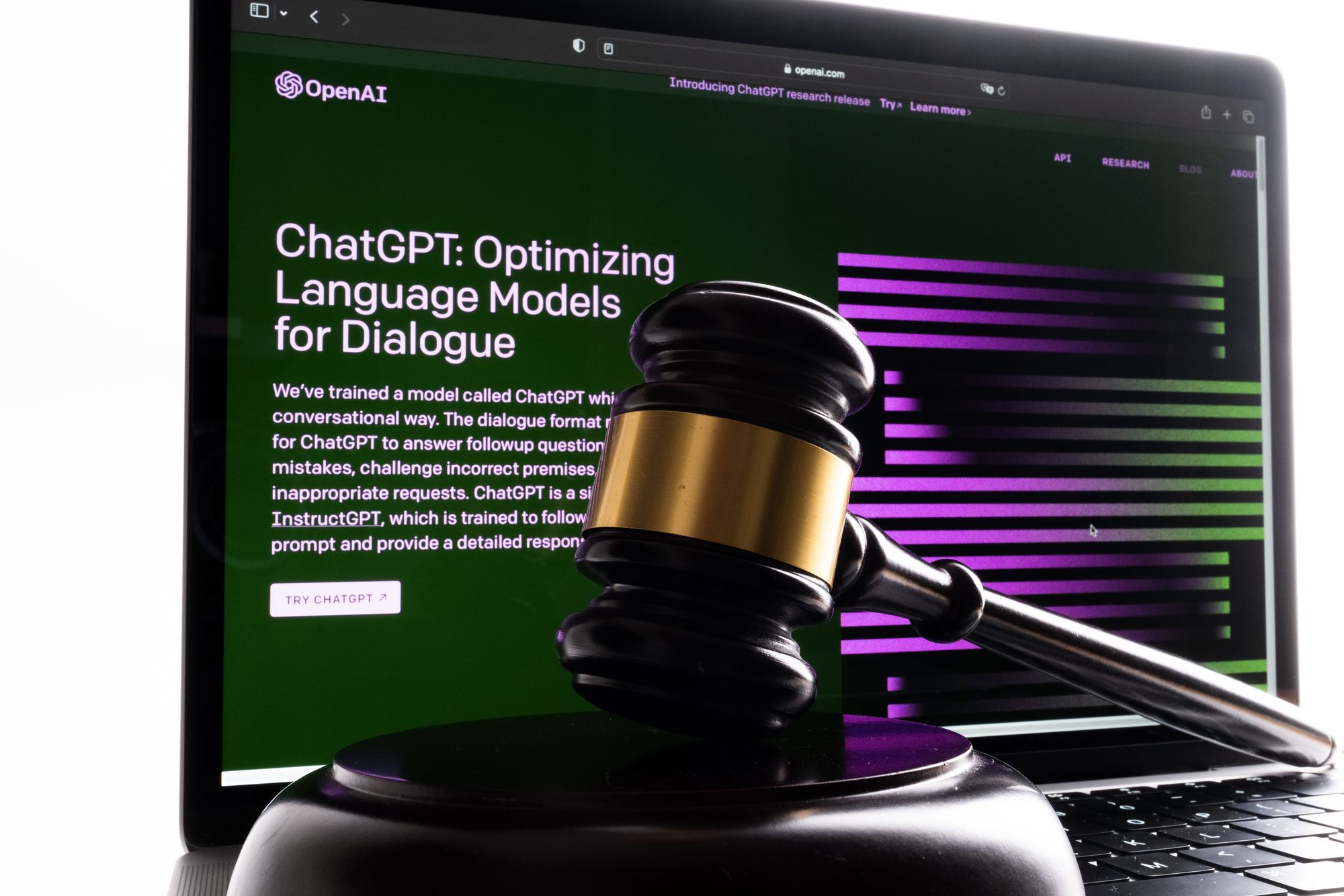
Lastly, we have ChatGPT. It’s probably one of the first AI tools you might have heard of, but did you know how it can help the legal team?
Just like most Tools, you can use ChatGPT to Generate insights from legal cases and help you find risks and opportunities for your case.
Document generation (in GPT 4) is one of the more obvious features, considering its popularity comes from its generative capabilities.
ChatGPT also helps you in
- Trial and Deposition preparation.
- Identify evidence in the document.
- Find key points in the case and
- Find potential questions for the witnesses.
- Save the total time it takes to go through the walls of text
Summarizing – 9 Best AI Legal Assistants
- Luminance
- Casetext’s CoCounsel
- LegAI
- LawGeex
- Paxton AI
- DoNotPay
- Legal Sifter
- ROSS Intelligence
- ChatGPT 3.5 and ChatGPT 4
Parting Notes
AI legal assistants have revolutionized the way lawyers work. So much so that some old-school practitioners are worried about their jobs.
However, just like any tool, AI is only as good as the person using it. The tools will help you with legal research, contract analysis, and more. And as the times change the capability and accuracy of these tools are bound to improve as well.
Right now these tools are saving a ton of time for the lawyers and helping them reduce errors.
The AI assistants discussed here are considered some of the best in the market. And they are already helping lawyers work smarter, not harder.
If you also want to make your legal career more efficient and effective, there’s no time better than now.
Like what you read? We have more! Check out our blog and read more about AI tools.
